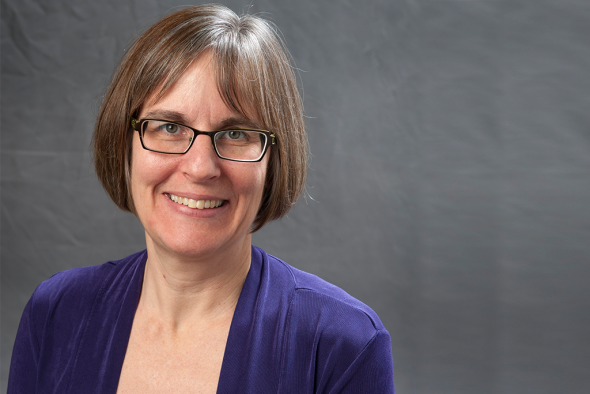University Scholar Maria Krysan
The University Scholars Program, now in its 36th year, honors faculty members for superior research and teaching, along with great promise for future achievements. The award provides $15,000 a year for three years.
Maria Krysan
Professor, Sociology
Years at UIC: 21
What are your research interests?
I am a sociologist who uses surveys, in-depth interviews, focus groups, survey-based experiments, and open-ended survey questions to study racial attitudes and the causes of racial residential segregation.
How did you become interested in these topics?
When I was an undergraduate sociology major, I remember reading a sociology journal article that was about the problem of racial residential segregation. As someone who spent my childhood in a small town in South Dakota, the idea of residential segregation was far removed from my lived experiences. When I went to college, I was exposed both through lived experiences and my studies to issues of racial inequality. I remember reading that article and having an “aha” moment — in sociology we call it the “sociological imagination” — where I came to understand how so much of the racial inequality we see in society comes from entrenched segregation. As one example, the way our cities are set up, if we have segregated neighborhoods, we’re going to have segregated schools. No way around it. As someone who had come to care deeply about racial justice, I felt that understanding why there is residential segregation was an important component to understanding persistent racial inequality. My hope was that my research could contribute to breaking down the inequities that flowed from segregation.
What do you teach?
Most recently, I have been teaching the Senior Capstone course in the sociology department. This class has three purposes: to reignite our major’s sociological imaginations; to give our students a chance to practice sociology in the real world; and to provide professional development opportunities to help prepare our soon-to-graduate students for what comes after graduation. We partner with nonprofits throughout Chicago and in small teams our students complete a capstone project. The project is designed to be a win-win. Our UIC sociology majors get to apply sociology to the real world and build new skills. And the city’s nonprofit organizations get the benefit of our wonderful students helping them with a project — and sometimes they even hire our recent graduates! I consider it an honor and privilege to work with our amazing and inspiring UIC sociology students and to help them prepare for whatever comes next in their journey.
How do you balance teaching and research?
Research can be a lonely enterprise, and it definitely almost always involves delayed gratification — it can take months and years for projects to go full circle and to see any “outcomes” from the research. By comparison, teaching is faster-paced and a social experience. So, I love the balance, because each are satisfying and gratifying in different ways, and together it creates a job that is never boring.
What’s your advice to students who want to focus their future careers on research?
I always tell students to get research assistant experience wherever you can get it — even if you aren’t sure you’re that interested in the topic of the research, and even if the work itself doesn’t seem that glamorous. My first research assistant experience was as an undergraduate work-study student. I had to copy names and addresses from family court documents into a notebook for a large study of the effects of divorce on children — I got the job because I had neat handwriting! But that job got me my first job out of college, which set me up for graduate school a few years later. Just being a part of a research project gives you a window into how research gets done, what the different methods are, and how projects get from the beginning to the end. Of course, it helps to be excited about the topic — but don’t be too choosy in the beginning, because you’re guaranteed to learn something no matter what. And my other advice? Be curious.

